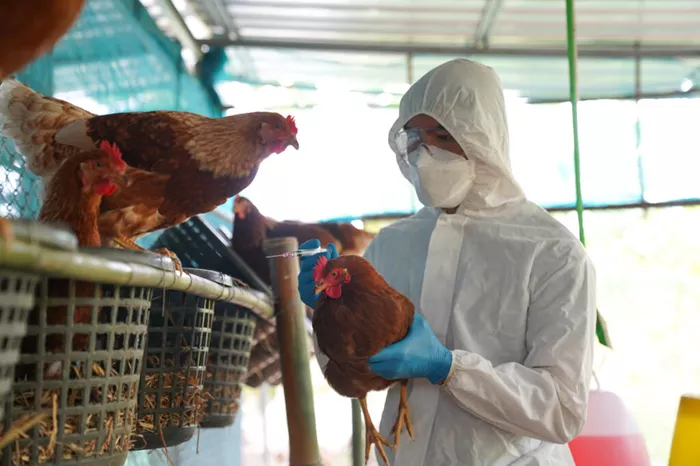As H5N1 influenza continues to spread across continents and species, including in the U.S., leading public health and vaccine experts are urging global leaders to implement a comprehensive strategy to mitigate this and future pandemic threats. Among their recommendations is the consideration of voluntary vaccination for individuals at high exposure risk.
“In this critical moment, the decisions we make regarding vaccine development, stockpiling, and deployment will significantly impact our ability to combat both current and future pandemic risks,” say Jesse Goodman, MD, PhD; Rick A. Bright, PhD; and Nicole Lurie, MD, MSPH, in a JAMA Viewpoint published on September 4.
The ongoing H5N1 outbreak in North America has already infected poultry, livestock, wild birds, and various marine and terrestrial mammals, with at least 13 human cases reported, primarily involving individuals who work on dairy and poultry farms. Although there has been no confirmed human-to-human transmission, the widespread infection among mammals is a cause for concern.
Experts warn that the current strain of H5N1 has exhibited an unprecedented ability to spread among mammals, posing a tangible threat of a human pandemic. Despite relatively mild human cases so far, the virus’s close proximity to human populations and its potential to mutate or recombine with human influenza strains elevates the risk of a future pandemic.
Immediate Actions and Long-Term Strategy
Dr. Jesse Goodman, a professor at Georgetown University School of Medicine and former Chief Scientist at the FDA, along with his colleagues, outlines a series of actions that can be taken to combat the risk posed by H5N1. These include short-, medium-, and long-term strategies focused on protecting at-risk individuals, bolstering vaccine stockpiles, and enhancing global preparedness for future threats.
Short-Term Measures: Protecting High-Risk Groups
In the immediate future, the U.S. government has stockpiled 4.8 million doses of H5N8 vaccine, which could offer cross-protection against current strains of H5N1. Goodman and his team suggest that, after proper regulatory review, this vaccine should be offered on a voluntary basis to individuals with high exposure risks, such as farm workers and those in close contact with animals.
Medium-Term Goals: Refreshing Vaccine Stockpiles
In the medium term, the authors stress the importance of refreshing vaccine stockpiles with doses that are well-matched to circulating H5N1 strains. Their goal is to ensure that at least 20 million individuals, particularly essential workers, can be quickly vaccinated in the event of a pandemic. Moreover, the experts call for strengthening global influenza vaccine development, including exploring the potential of mRNA vaccines, which allow for faster and more scalable production.
Long-Term Strategy: Pre-Pandemic Immunization
Looking further ahead, Goodman and his colleagues advocate for research into pre-pandemic immunization strategies, where high-risk groups might be vaccinated during non-pandemic periods to build immunity against potential threats. While still untested, this approach could significantly reduce the impact of future pandemics if proven effective.
A Comprehensive Approach
The authors conclude by calling on governments, international organizations, and the private sector to develop a unified strategy addressing pandemic influenza threats, with a focus on both human and animal health. They emphasize the need for a comprehensive approach that includes vaccines, diagnostics, therapeutics, and non-pharmaceutical interventions. Protecting farm animals, workers, and the economy is critical, as these sectors often overlap during pandemics.
The time for action, they argue, is now, before another pandemic strikes. “Decisive action must be taken today, while we have the opportunity,” they conclude.
Related articles:
Four New Cases of Bird Flu Confirmed Among Colorado Poultry Workers
First Human Case of A(H5N2) Bird Flu Reported in Mexico; Patient Dies
Urgent Health Alert: Counterfeit Vodka Found With Toxic Industrial Alcohol, Fsa Warns


